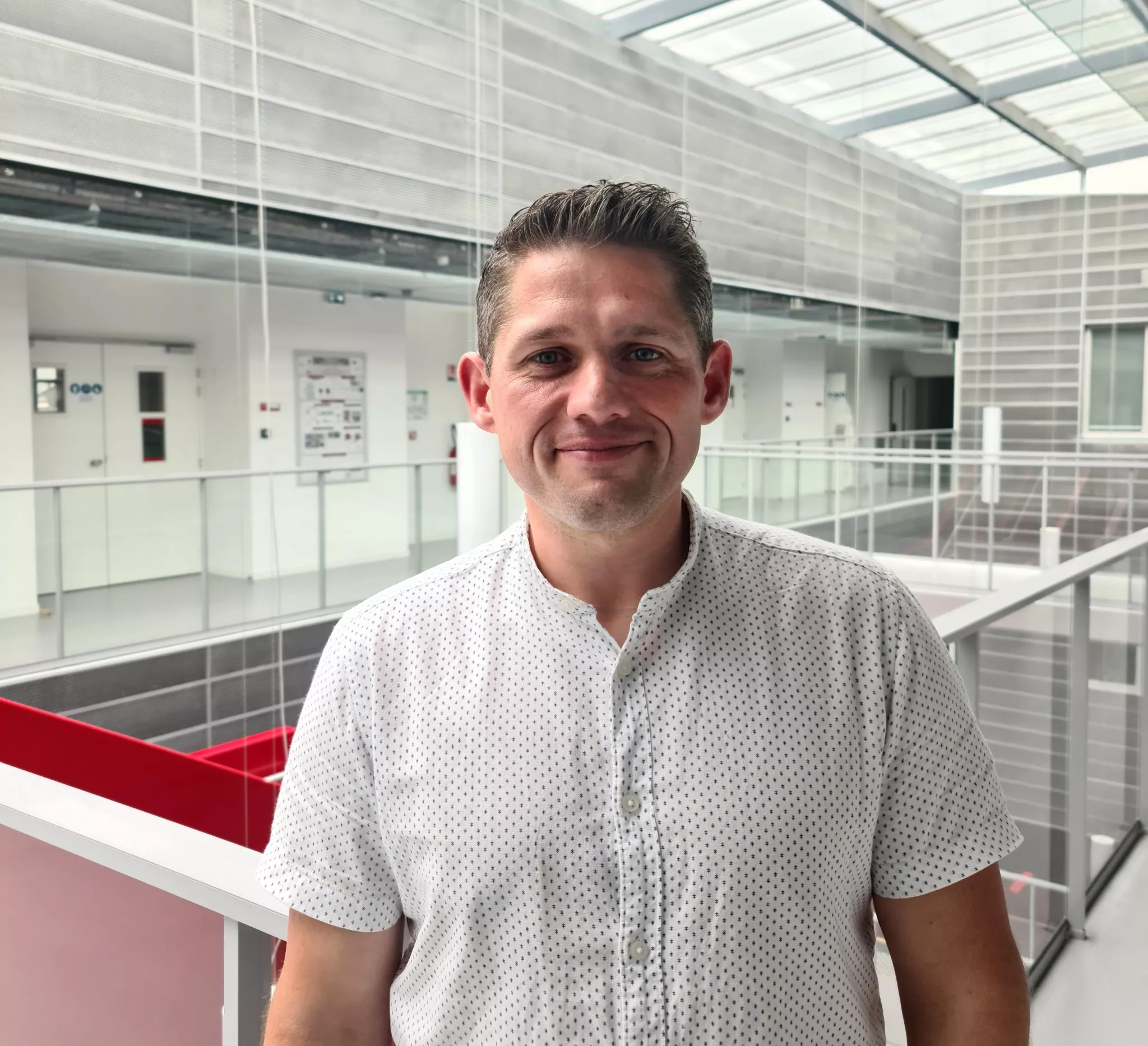Matthieu Becuwe: new permanent professor at LRCS

- What is your career path?
I first joined the Université du littoral Côte d'Opale (ULCO) in 2000 to do a degree in chemistry. During this degree, my interest was focused on organic chemistry. Then, I did a first year of master in analytical chemistry and in industrial control and environment, then a second year of master in organic and macromolecular chemistry at the University of Lille. This path allowed me to discover different facets of chemistry, and also gave me a taste for academic research, especially with my 3rd year undergraduate internship which was a real revelation for me. Besides, I have kept very strong links with my supervisors from that time.
Things started to change when I pursued my PhD to develop hybrid materials based on silica for the detection of pollutants by fluorescence, in an organic synthesis laboratory, and therefore not used to synthesize this type of compound. Nevertheless, it was a very important experience that changed my scientific expertise towards materials but not yet towards energy. I continued in this direction with a first post-doc at the LRCS in 2010, where I joined Emmanuel Baudrin's group, which was working on potentiometric sensors to detect iron III in blood. After that, I switched completely to the field of nanomaterials since I joined the Laboratoire de Chimie de la Matière Condensée de Paris at the Collège de France in the group of Clément Sanchez and under the responsibility of François Ribot. The subject had an industrial aspect because I was working on the synthesis of additives for concrete.
Finally, I returned to the LRCS in September 2011 as a lecturer to develop interface materials for batteries, a field I did not know.
- What does this new faculty position represent?
On the one hand, it's a certain recognition of the work I've done over the last eleven years, and on the other hand it's a big responsibility because once you've reached this level you expect a lot. You have to be a driving force for research, share your expertise and experience or exchange with people from other disciplines. There is a different pressure than before, but it is very stimulating on a daily basis.
The day after the auditions, I was told that my life was not really going to change and that I would continue to do what I was already doing. You don't become a professor overnight, you change as you progress as a lecturer. In any case, I am aware that it is a chance for me to have become a professor relatively young.
- What is your main research topic today?
At the beginning, I worked almost exclusively on organic batteries with the idea of replacing electrode materials composed of critical elements (e.g. nickel and cobalt). This aspect is still relevant today, will be strengthened and, I hope, will allow to manufacture new generations of electrodes. Of course, the performances are not yet as good as those of the batteries currently on the market, but it is an alternative that must be developed in order not to accentuate certain problems related to mining or the availability/recyclability of resources. There is still a lot of research to be done to get to a viable prototype but I am convinced that we will get there if we collaborate effectively.
Otherwise, I have a growing activity in the field of electrolytes, where I am enjoying developing hybrid materials based on nanomaterials or polymers to make new batteries with less critical and more easily recyclable elements. It's a fast-growing field and very competitive but also very exciting.
And lately, we have started to introduce concepts from supramolecular chemistry to control ion mobility. This is a poorly explored playground for electrolytes, but it is very promising.
- What are your future projects?
Scientifically speaking, environmental and societal issues are becoming more and more important and I think it's important to take a stand on this right now by thinking about how to make batteries evolve so that they have less impact while still being efficient. It's quite a challenge to juggle these two aspects.
And personally speaking, I would like to continue to evolve, to improve, I want to go further and further, to explore unknown grounds. People say that I am an eternal dissatisfied person, I think it's true, but I need to keep my mind busy. I'm lucky enough to be doing a job I love. So I will continue to build and submit projects, gain responsibility, build new training courses with a strong energy connotation for example.